Top Strategies for Enhancing Precision in CNC Boring Machine Operations
In the rapidly evolving landscape of CNC boring machines, the precision plays a pivotal role in ensuring product quality and operational efficiency. According to a report by MarketsandMarkets, the global CNC machine market is expected to reach USD 100 billion by 2025, significantly driven by advancements in precision engineering. The ability of CNC boring machines to perform intricate drilling operations with high accuracy not only enhances product consistency but also reduces material waste—reportedly by as much as 30%, as noted in a recent study by the International Journal of Advanced Manufacturing Technology.

As industries increasingly shift towards automation and smart manufacturing, implementing top strategies for enhancing precision in CNC boring machine operations becomes crucial for gaining a competitive edge, improving production capabilities, and ultimately delivering superior results to clients.
Top Metrics for Evaluating Precision in CNC Boring Operations
In the realm of CNC boring operations, precision is paramount. To evaluate and enhance this precision, it's essential to focus on specific metrics that can significantly impact the overall efficiency and quality of machining processes. Key metrics include dimensional accuracy, surface finish quality, and repeatability of operations. By closely monitoring these metrics, operators can ensure that their CNC boring machines are running at optimal levels.

Tips for enhancing precision include regularly calibrating the machine tools to maintain accuracy over time. Ensuring that tool wear is routinely checked and accounted for can prevent discrepancies in cut dimensions. Moreover, implementing advanced software for real-time monitoring can provide immediate feedback on the machining process, allowing for quick adjustments when necessary.
Another critical aspect is the integration of feedback loops through data analysis. Collecting data not only on the machining process but also on external factors such as temperature and humidity can provide insights into variations that affect precision. By analyzing these factors, operators can make informed decisions to fine-tune their operations and enhance overall productivity in CNC boring applications.
Comparative Analysis of CNC Boring Machines: Performance and Accuracy
When evaluating CNC boring machines, performance and accuracy are paramount factors that directly affect production quality. A comparative analysis of different models reveals significant variances in their operational capacities. Some machines excel in speed but may compromise on precision, while others prioritize accuracy, resulting in longer run times. Understanding these trade-offs is essential for manufacturers aiming to optimize their processes. For example, machines equipped with advanced feedback systems and higher-grade components typically deliver superior precision, ensuring dimensional accuracy through each cycle.
Moreover, the type of control system plays a critical role in enhancing performance and accuracy. Models that utilize state-of-the-art software for real-time monitoring and adaptive control often provide better results compared to traditional systems. This technology enables operators to make instant adjustments, reducing the likelihood of errors caused by tool wear or material inconsistencies. Ultimately, selecting the right CNC boring machine involves a thorough analysis of both performance metrics and accuracy standards tailored to the specific requirements of a given machining task, thereby paving the way for enhanced operational efficiency and product quality.
Key Factors Impacting Precision in CNC Boring Processes
In the realm of CNC boring machine operations, precision is paramount. Many factors can impact the accuracy of these processes, with tool selection being one of the most critical. The diameter, material, and geometry of the boring tools significantly affect the quality of the finished bore. Selecting the appropriate tool not only ensures a better fit but also reduces the risk of tool wear and tear, leading to improved overall efficiency. Additionally, using sharp, well-maintained tools can minimize vibrations, thus producing more precise cuts.
Another key element influencing precision is machine calibration. Regular calibration of the CNC boring machines guarantees that the settings align properly with the operational parameters. This includes checking the alignment of the spindle, ensuring that all axes move smoothly, and verifying the counterbalance of the machine. Furthermore, the integration of advanced software for real-time monitoring can help in detecting any deviations early, allowing for timely adjustments to maintain the desired level of precision. Overall, focusing on these factors can significantly enhance the output quality in CNC boring operations.
Benchmarking Best Practices: Leading Technologies for Precision Enhancement
In today's rapidly evolving manufacturing landscape, precision is paramount, particularly in CNC boring machine operations. Benchmarking best practices plays a critical role in enhancing operational accuracy and efficiency. Leading-edge technologies are now being integrated into CNC processes, leveraging advancements in artificial intelligence and machine learning. These technologies facilitate real-time monitoring and adjustment, enabling operators to optimize machining parameters dynamically, leading to improved precision and reduced material wastage.
Moreover, the trend of adopting innovative production techniques is influencing the way precision is measured and maintained. Implementing comprehensive benchmarking systems allows enterprises to compare their performance metrics with industry standards, identifying areas for improvement. This approach is not only applicable to traditional manufacturing but is also being embraced in sectors like agriculture, where machine learning is enhancing precision farming.
As these technologies mature, the capacity for benchmarking and the use of data analytics will progressively refine operational standards across various industries, setting new benchmarks for precision in manufacturing and beyond.
Real-World Case Studies: Precision Gains in CNC Boring Machine Operations
In the realm of CNC boring machine operations, enhancing precision is critical to achieving optimal performance and efficiency. Real-world case studies have demonstrated that manufacturers can increase accuracy by implementing advanced calibration techniques and deploying robust monitoring systems. For instance, companies that adopted real-time feedback mechanisms reported a precision improvement of approximately 15%, as highlighted in recent industrial training reports. These strategies not only reduce tolerance levels but also significantly minimize the risk of defects in the manufacturing process.
Tip 1: Regularly calibrate your CNC boring machines to maintain their accuracy. A well-calibrated machine not only enhances operational precision but also extends the lifespan of the equipment.

In addition, training staff to understand the intricacies of CNC operations can lead to a marked increase in precision. Empirical data suggests that organizations investing in employee training see a return on investment of up to 20% in production accuracy. By empowering workers with knowledge about the machines and processes, companies can ensure a more engaged workforce capable of optimizing operations.
Tip 2: Introduce specialized training programs focused on CNC technology for your employees. This investment can pay off by fostering a culture of precision and innovation within your organization.
Related Posts
-
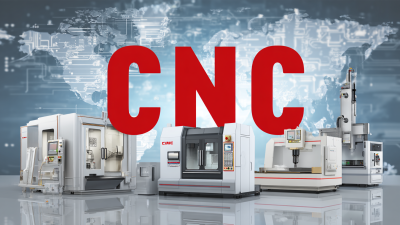
Understanding Import and Export Certifications for Best Different CNC Machines A Comprehensive Tutorial for Global Buyers
-
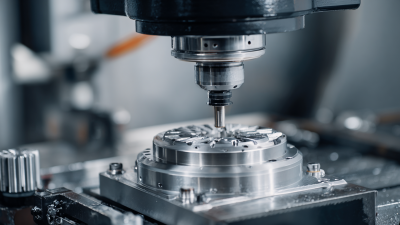
The Future of Precision: Advancements in Best CNC Machining Centers
-
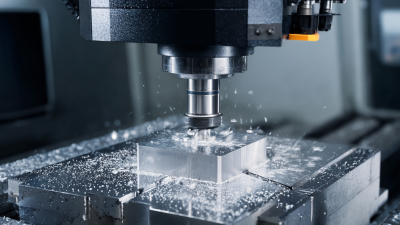
7 Key Features That Make the Best Vertical Machining Centers Stand Out in 2023
-
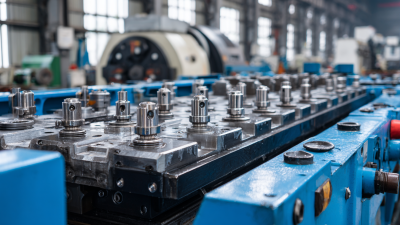
Ultimate Guide to Sourcing Top Quality CNC Boring Mills: Tips for Global Buyers
-

Exploring CNC Turning Center Applications: Innovative Examples Across Industries
-
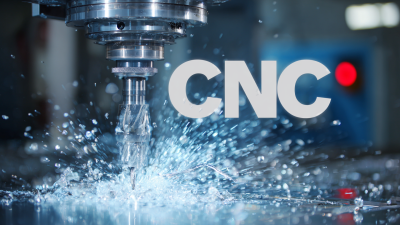
How to Select the Best CNC Machine Tools for Your Manufacturing Needs
